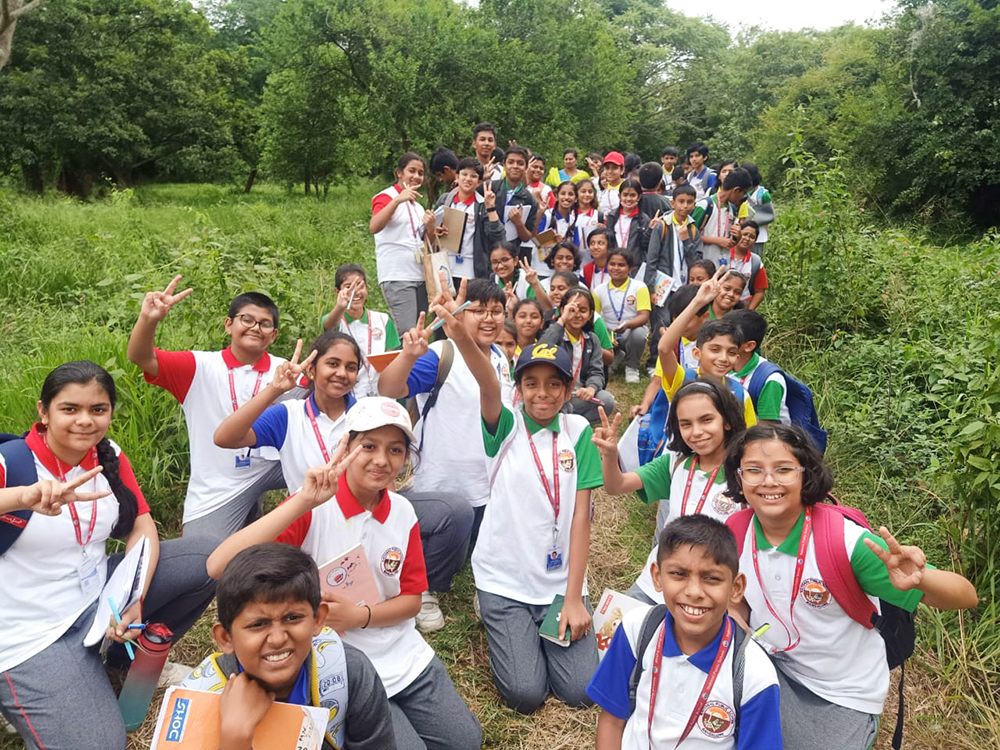
“Come forth into the light of things, let nature be your teacher”-William Wordsworth
Field trips are a great way to spark curiosity and learn about the external world and also provide a chance to explore things beyond the boundaries of academics. The major objective of botanical garden is to maintain extensive collections of plants, labeled with common and scientific names and regions of origin. Its important for students to acquaint themselves with the flora and understand the subtle balance in the ecosystem that need to preserved for survival of all species.
Students of grade VI and VII had the privilege to visit Gandhi Krishi Vigyana Kendra- University
of Agricultural Science, a research institute. Expert from the horticulture department escorted our students around the botanical garden. Students were enriched with the information on the different branches of horticulture and their significance, they also received information about different types of horticulture crops comprising mainly medicinal, aromatic, ornamental etc. Students were inquisitive about the botanical names and importance of variety of plants displayed.
Students were guided to visit the endangered plants which are vulnerable to extinction shortly, either globally or in specific geographic locations. Out of the 1.9 million living species of flora and fauna, about 0.7 million are plants, around 40% of existing plants await extinction. Students understood that the loss of endangered plant species annually will threaten the supply of food, fuel, medicines, etc.
GKVK botanical garden is a rich repository of threatened plants of not just Karnataka, but also from other parts of the world. It is called scientific garden because it is laid scientifically as per Bentham and Hooker’s system for easy identification of plants for visitors, taxonomic enthusiasts and students. Certainly, this field trip helped the students to develop more practical knowledge and opened a new perspective to look at plants around them. The Highlight of our visit was seeing the Giant lily (Victoria Amazonica). But the copious notes taken by students and the reflection worksheet they prepared for their Portfolios speaks volumes about the influence this trip had on their learning and understanding of plant kingdom.
